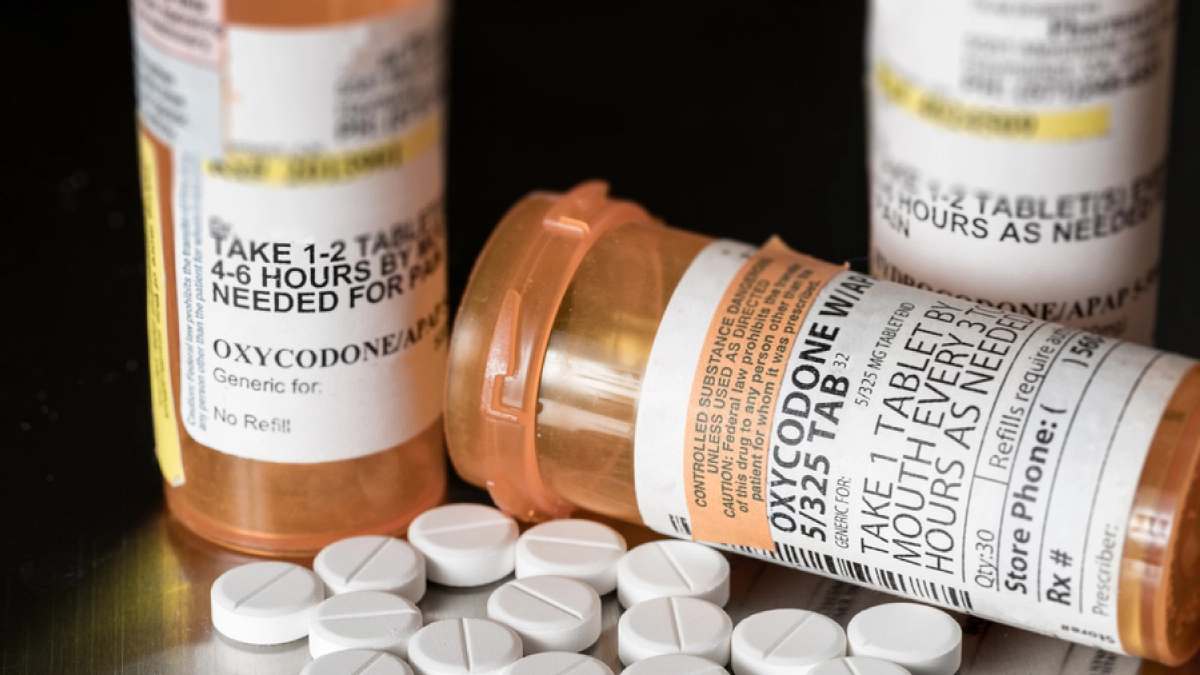Schizophrenia is a severe mental disorder that affects how a person thinks, feels, and behaves, often causing them to lose touch with reality. When combined with a substance use disorder, the challenges intensify, leading to complex and intertwined symptoms.
Individuals with schizophrenia are at a higher risk of developing a co-occurring substance use disorder, which can worsen their mental health and complicate treatment. Understanding the relationship between these disorders is crucial for effective intervention and support.
Key Takeaways
Individuals with co-occurring disorders should work closely with a healthcare team to develop a comprehensive treatment plan that addresses their specific needs. Here’s what you need to know:
- Schizophrenia and substance use disorder commonly co-occur, leading to complex treatment needs.
- Integrated treatment approaches are crucial for addressing both disorders simultaneously.
- Early intervention and ongoing support are key to managing schizophrenia and substance use disorder effectively.
For recovery guidance and to live a sober life, contact The Haven Detox Little Rock at (501) 271-3342.

Overview Of Schizophrenia And Substance Use Disorder
Schizophrenia is a severe mental disorder categorized by distorted thinking, perceptions, and emotions. Symptoms include hallucinations, delusions, and disorganized behavior. Substance Use Disorder (SUD) involves the damaging or dangerous use of substances like alcohol or drugs.
People with schizophrenia are at higher risk of developing SUD, often using substances to self-medicate. This dual diagnosis complicates treatment and recovery, as substance use can exacerbate schizophrenia symptoms and vice versa.
Epidemiology
Epidemiology studies how often diseases happen in different groups of people and why. Researchers use epidemiology to understand who gets sick, why they get sick, and how diseases spread. This helps doctors and scientists find ways to prevent and treat illnesses. When studying mental health, like schizophrenia and substance use disorder, epidemiology helps us see patterns and find connections between different conditions.
Prevalence Of Schizophrenia
Schizophrenia affects about one percent of individuals worldwide. This means that out of every 100 people, one person may have schizophrenia. It often starts in late teens or early adulthood. Men and women can both get schizophrenia, but men usually show symptoms earlier.
Schizophrenia makes it hard for people to think, manage emotions, and relate to others. It can be a lifelong challenge, but treatment helps many people manage their symptoms and lead productive lives.
Prevalence Of Substance Use Disorder Among Individuals With Schizophrenia
Substance use disorder (SUD) is common among individuals with schizophrenia. Studies indicate that nearly 50 percent of people with schizophrenia struggle with SUD at some point in their lives. They may use substances like alcohol, nicotine, or drugs to cope with their symptoms. This combination complicates treatment and recovery.
It’s essential to address both conditions simultaneously for effective care. Integrated treatment plans that tackle both schizophrenia and SUD can lead to better outcomes for these individuals.
Pathophysiology
Schizophrenia affects how the brain works. It changes thinking, emotions, and behavior. The brain’s chemical signals become unbalanced. This causes problems in areas controlling thoughts and perceptions.
Genetics and environment also play a role. If someone has a family member with schizophrenia, they have a higher risk. Stress and drug use can trigger symptoms in those already at risk.
Neurobiological Mechanisms
The brain of a person with schizophrenia shows changes. Dopamine, a key brain chemical, is often too active. This overactivity leads to hallucinations and delusions. Other chemicals like serotonin are also involved. Brain scans show differences in the structure and function of the brains of those with schizophrenia. These changes affect memory, attention, and decision-making.
Impact Of Substance Use On Schizophrenia Symptoms
Substance use can make schizophrenia symptoms worse. Drugs like marijuana, alcohol, and cocaine affect brain chemistry. They can increase hallucinations and paranoia. People with schizophrenia might use drugs to feel better, but it usually backfires. Substance use makes it harder to manage the illness. It also raises the risk of hospitalization and poor outcomes.
Interaction Between Schizophrenia And Substance Use Disorder
When someone has both schizophrenia and substance use disorder, it creates a tough situation. The two conditions feed off each other, making treatment difficult. Substance use can hide or worsen schizophrenia symptoms.
It complicates diagnosis and treatment. Managing both requires a comprehensive approach. Treatment plans should include medication, therapy, and support for substance use issues. Addressing both conditions improves chances for recovery and a better quality of life.
Risk Factors
Schizophrenia and drug abuse often co-occur, and several risk factors can contribute to this dual diagnosis. Understanding these risk influences is vital for prevention and treatment.
Here are some key factors:
Genetic Factors
Genetics plays a big part in the risk of developing schizophrenia and substance use disorder. If someone in your family has schizophrenia, you are more likely to get it, too. The same goes for substance use disorders. If your parents or siblings struggle with addiction, you might have a higher chance of facing similar challenges. Genes can affect your brain’s work, making it more vulnerable to both conditions.
Environmental Factors
The environment you grow up in can also influence your risk. Stressful life events, like losing a loved one or facing major trauma, can increase the chances of developing schizophrenia. Substance use disorder can also stem from your surroundings.
Peer pressure, accessibility of drugs or alcohol, and living in a chaotic or unstable environment can all contribute. If you experience significant stress or trauma, it can trigger mental health issues and substance abuse.
Psychological Factors
Psychological factors are another important piece of the puzzle. People with schizophrenia might turn to drugs or alcohol to cope with their symptoms. On the other hand, using substances can worsen the symptoms of schizophrenia.
Mental health issues, such as anxiety or depression, can make someone more likely to develop both conditions. You might be more at risk if you struggle with self-esteem or managing emotions. Understanding these factors is essential to support those facing these challenges better.
Understanding these risk factors can help you or someone you know seek the right help early on.
Symptoms And Diagnosis
Schizophrenia and substance use disorder present unique challenges in diagnosis and treatment. Below is an overview of symptoms and diagnosis for each:
Common Symptoms Of Schizophrenia
Schizophrenia often causes confusion and difficulty in distinguishing reality from imagination.
Common symptoms include:
- Hallucinations: Hearing or seeing things that aren’t there.
- Delusions: Strong views that are not based on reality.
- Disorganized Thinking: Trouble organizing thoughts and speech.
- Lack of Motivation: Reduced interest in everyday activities.
- Social Withdrawal: Avoiding friends and family.
These symptoms can make everyday life challenging and require medical attention.
Common Symptoms Of Substance Use Disorder
Substance use disorder affects the brain and behavior, leading to the inability to control the use of legal or illegal drugs.
Common symptoms include:
- Cravings: Strong desire to use the substance.
- Loss of Control: Inability to stop using the substance despite wanting to.
- Tolerance: Needing more of the substance to get the same effect.
- Withdrawal: Physical symptoms when not using the substance.
- Neglecting Responsibilities: Ignoring work, school, or family obligations.
Recognizing these symptoms early can help in seeking timely treatment.
Challenges In Diagnosing Co-Occurring Disorders
Diagnosing co-occurring disorders, such as schizophrenia and substance use disorder, can be tricky. The overlapping symptoms make it hard to identify which disorder is present. For example, hallucinations can occur in both schizophrenia and substance use.
Additionally, substance use can mask or worsen mental health symptoms, leading to misdiagnosis. Healthcare providers need to look at the full picture and consider both mental health and substance use histories. Accurate diagnosis requires a thorough assessment and often involves multiple healthcare professionals. This comprehensive approach ensures that individuals receive the right treatment for both conditions.
Treatment Approaches
Treatment approaches for co-occurring schizophrenia and substance use disorder typically involve integrated care that addresses both conditions simultaneously.
Here are some common approaches:
Integrated Treatment Programs
Integrated treatment programs combine multiple approaches to address mental health and substance use disorders. These programs provide a comprehensive medical, psychological, and social support plan—the goal is to treat the whole person, not just the symptoms. By integrating various treatments, patients receive coordinated care, leading to better outcomes.
Pharmacological Treatments
Pharmacological treatments involve the use of antipsychotic medications to manage mental health conditions and substance abuse. Medications can help reduce symptoms, prevent relapse, and improve overall functioning.
Commonly used medications include antidepressants, antipsychotics, and mood stabilizers. For substance use disorders, medications like methadone, buprenorphine, and naltrexone can aid in recovery by reducing cravings and withdrawal symptoms.
Psychotherapy And Behavioral Interventions
Psychotherapy and behavioral interventions are crucial components of treatment. These approaches include individual, group, and cognitive-behavioral therapy (CBT). Therapy helps patients understand their thoughts and behaviors, develop coping strategies, and build healthier relationships. Behavioral interventions focus on changing harmful behaviors and promoting positive actions through reinforcement and practice.
Case Management And Support Services
Case management and support services provide ongoing assistance to individuals in treatment. Case managers aid patients in navigating the healthcare system, accessing resources, and coordinating care. Support services, such as peer support groups and community programs, offer additional help and encouragement.
These services ensure patients have the support to maintain their progress and achieve long-term recovery.
Frequently Asked Questions (FAQs)
What mental disorders are commonly found together with substance abuse?
Substance abuse often co-occurs with mental health issues, including mood disorders, anxiety disorders, and psychotic disorders. Adults with substance abuse may experience psychosis and negative symptoms. Commonly, alcohol abuse is linked with mental illnesses, exacerbating conditions such as schizoaffective disorder.
Family members should know these connections to support loved ones facing these dual diagnoses. In the United States, treatment facilities address both substance abuse and co-occurring mental health disorders to provide comprehensive care.
What substances are associated with schizophrenia?
Substances associated with schizophrenia include cannabis, amphetamines, cocaine, and hallucinogens. Cannabis use, particularly during adolescence, has been linked to an increased risk of developing schizophrenia.
Amphetamines and cocaine can trigger psychotic symptoms and exacerbate existing conditions. Hallucinogens like LSD may induce psychosis in vulnerable individuals. Chronic use of these substances can worsen schizophrenia symptoms and hinder treatment effectiveness, making it crucial for individuals with schizophrenia to avoid these drugs and seek professional assistance for substance abuse issues.
Can certain substances trigger or worsen the symptoms of schizophrenia?
Certain substances can trigger or worsen schizophrenia symptoms. Cannabis, especially when used during adolescence, increases the risk of developing schizophrenia. Amphetamines and cocaine can induce psychotic symptoms and worsen existing conditions.
Hallucinogens like LSD can also trigger psychosis in vulnerable individuals. Alcohol abuse can exacerbate symptoms and interfere with treatment. Avoiding these substances is crucial for managing schizophrenia effectively and maintaining overall mental health.
Rediscover Balance With The Haven Detox-Little Rock
Are you struggling with co-occurring disorders like substance abuse and mental health issues? Find solace and recovery at The Haven Detox-Little Rock.
Our residential treatment program offers a sanctuary for healing, where our compassionate team provides tailored support for dual diagnoses.
If you’re struggling with substance abuse, our detox program provides a safe and supportive environment to rid your body of illicit drugs. Furthermore, our therapists offer counseling and evidence-based therapies, empowering you to develop healthy coping mechanisms and address underlying issues.
Choose recovery, choose hope by contacting us at (501) 271-3342.





